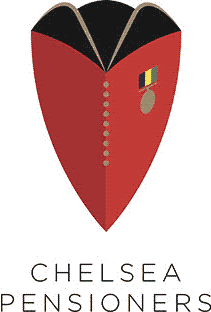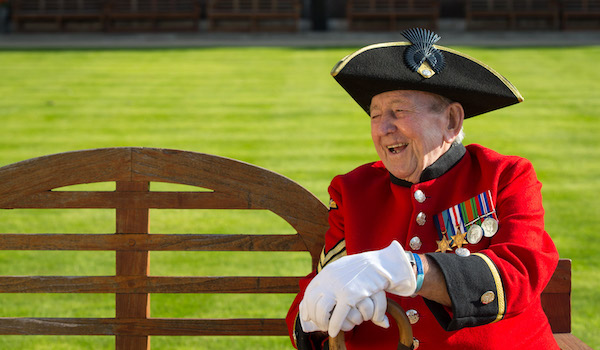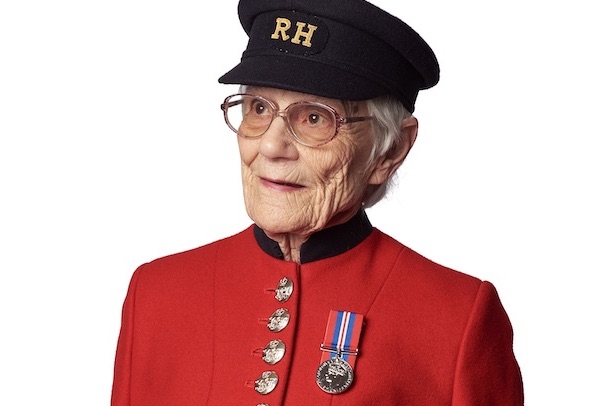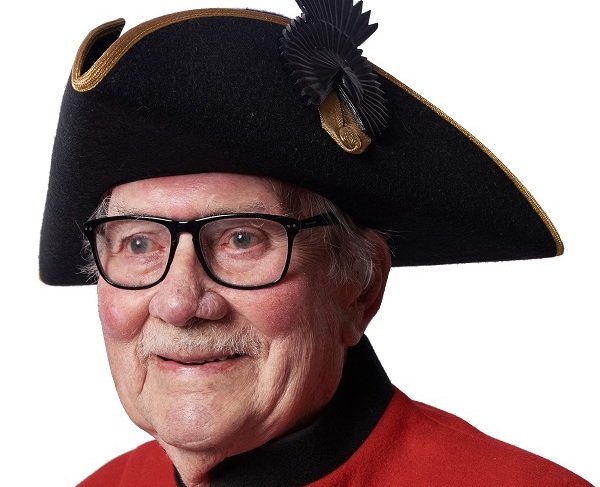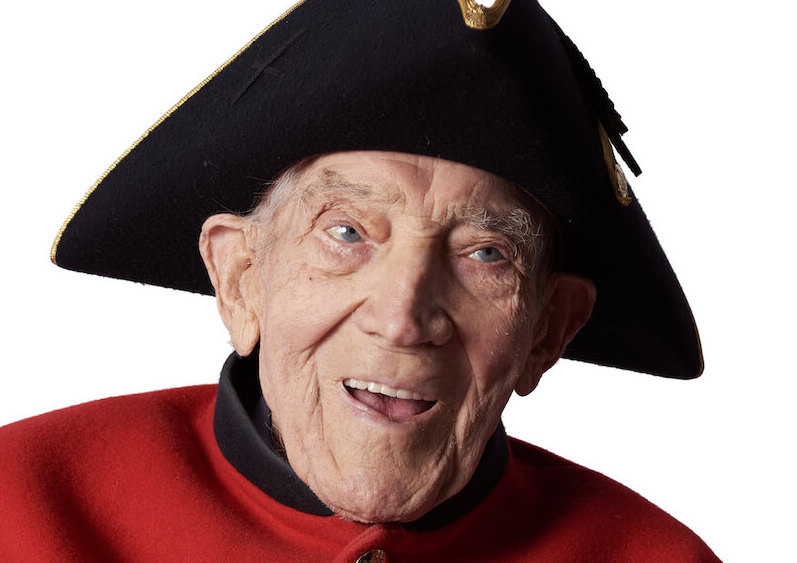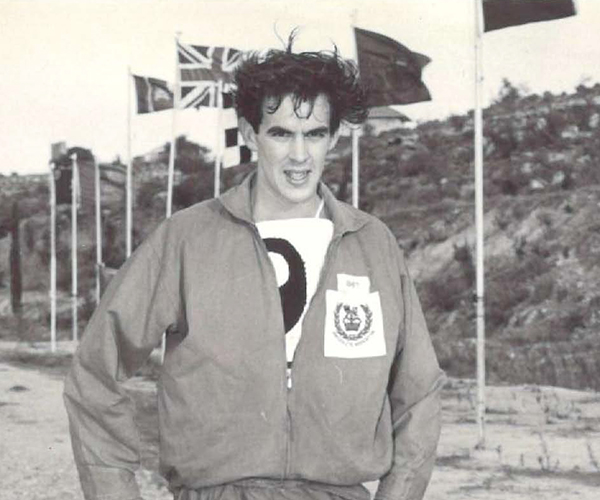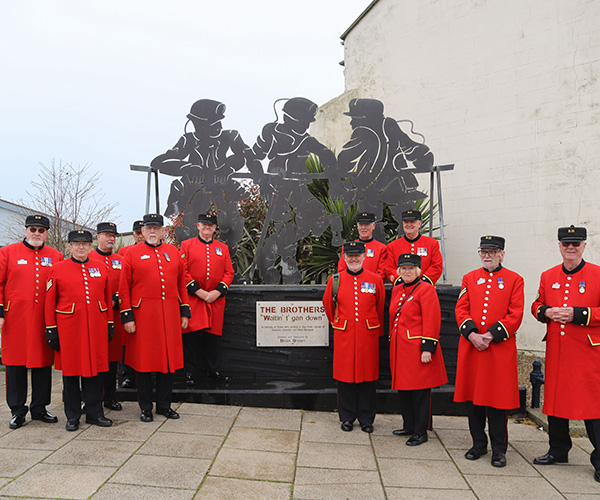Profile - Bill Fitzgerald
27th February 2019
Name: Bill Fitzgerald
Regiment: Queen's Royal Regiment
Served: 1943 - 1946
93 year old Bill Fitzgerald is one of our incredible WW2 veterans. Here he talks us through his fascinating life story, from growing up in London during the Blitz, to participating in the historic D-Day landings, and then later making the decision to live at the Royal Hospital Chelsea as a Chelsea Pensioner.
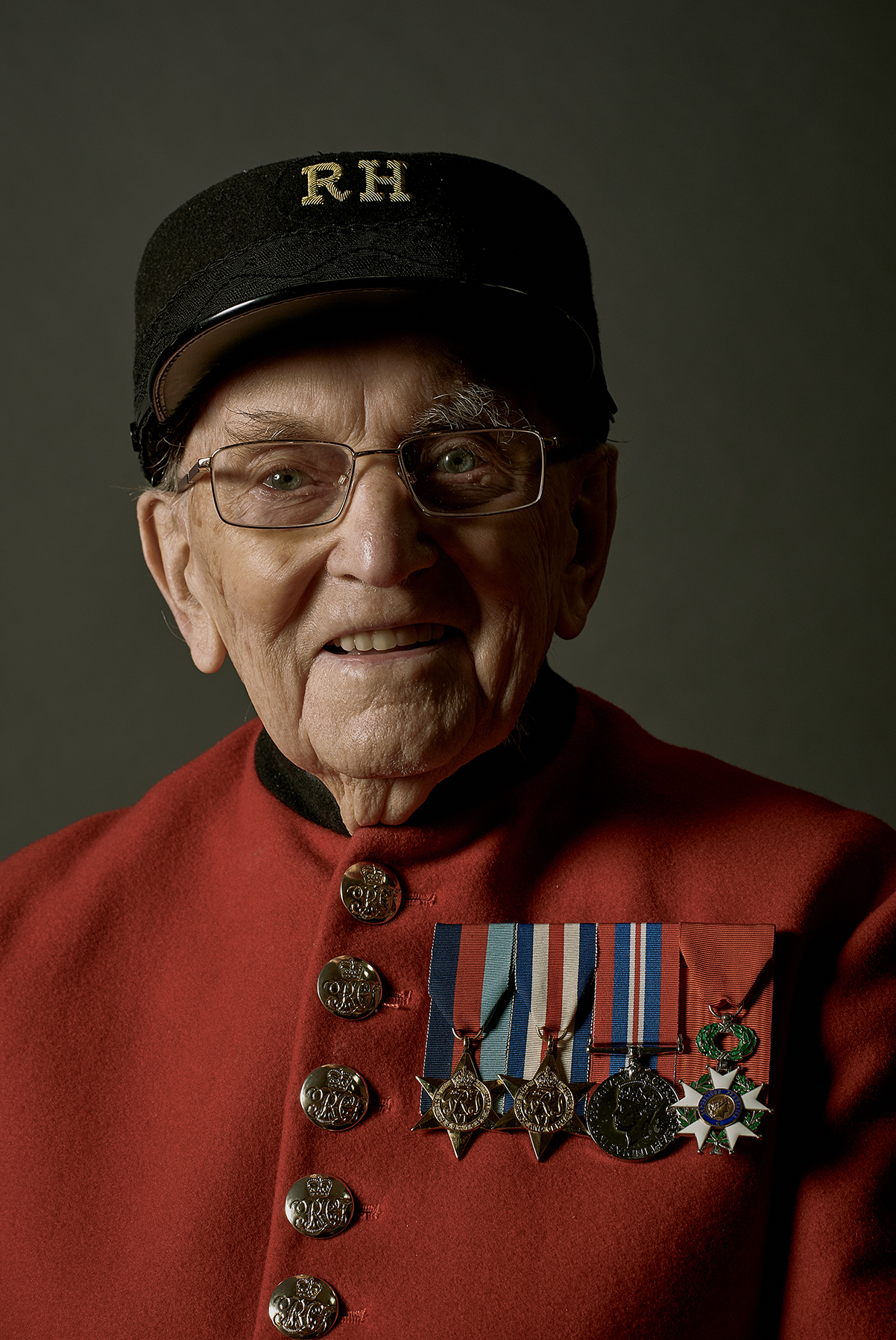
I always knew I was going to join the Army and I hoped it would make a full time career for me. When I was 16 I joined the Army cadets as my dad had told me that if I was going to join the Army I needed to get some experience first. My father was an ex-service man - a war pensioner from WW1 so he actually knew what was coming up for me and I got as much experience as I could before I was called up in 1943.
When you were called up in those days, you did an eight week training course. You all trained together and then when the eight weeks were over, you were all put into different regiments. I was sent down to join the Queen’s Royal Regiment and I was there for about eight months completing further training until they decided that the battalion I was in were going to split up – one half to train for D Day and the other to be sent to fight in Italy.
I was to train for D Day and the next 12 months were spent training and travelling from South End up to Carlisle, always living in tents. Eventually D Day started getting nearer. We didn’t know what date it was – we were down there, camping out and I think on 4th June we boarded a ship, but we had no idea where we were going! We knew we were going to France but only the officers had the full picture. Unfortunately on the 5th, the weather broke and it was cancelled. We had to stay out in the channel until the next day – June 6th – when the weather was good.
From there we boarded the ship and half way over we all had to get off the ship, climbing down rope ladders to get into the landing craft. All my friends and I were only about 19, and of course the furthest we’d ever been in our lives was probably down to Southend. We all got into the landing craft – we got in so far until we hit something underneath – an obstacle which was placed there to stop landing crafts – so we had to abandon it. The wader got out of the landing craft with a piece of long rope and of course the poor bloke had to walk straight in – any landmines, anything like that and he would have taken the hit. Luckily he reached the beach and as soon as he did he secured the rope which we then grabbed and walked in with our packs and rifles. It was a marvellous experience at 19 years of age – we had never come up against anything like that.
When we got to the beaches [Bill landed on Gold Beach], we properly looked at each other and it was unbelievable. We were very lucky. We weren’t the first people to go in and what you saw floating in the water – I think they lost 50% of their chaps and that’s something you never forget.
We were told to get off the beach as quickly as we could and we started moving forward. We had to wait for the tanks to arrive and after about a couple of hours they came. From Gold beach we started moving towards Cannes. It was a marvellous experience as we were going through. The times we had with all the soldiers; the tips they gave us.
On June 15th the tanks stopped and we all stopped at the wrong place I’m afraid – we got shelled to hell. We were blown all over the place. All I remember was going up in the air, coming down and I don’t know which soldier it was, but someone put my helmet over my face and from then on I was semi-conscious and they picked me up and put me in the field hospital. The shrapnel had broken my femur and I received a slight wound on the head and then they strapped me up and we waited.
I was eventually flown back to Blighty in the Dakotas and then from there we went to Farnham where the Germans were sending over flying bombs and we were all evacuated to Chester Royal Infirmary. I had an operation and they wanted to save the leg so they clamped the two bones together which made one leg shorter than the other. I was there for 9 months until they were happy that I could get up and walk around. Whilst I was in Chester I lost touch with what was going on in the battalion but I do know that a few of my friends were killed. When I got the war medal I thought ‘that belongs to all your friends that never came back.’
After I was discharged as a war pensioner in 1946, I met my wife. We got married in 1948 and had a very happy life together. We had two wonderful sons and were married for 57 years until she passed away in 2005.
Funnily enough, when I left the Army in 1946, the first thing they gave me was a card from the Royal Hospital Chelsea telling me that if I ever needed help in my later years, I should come to the Royal Hospital.
Finally in 2016 I told my sons that I would love to go back into the Army community, to be amongst ex-Army chaps, so we visited the Royal Hospital and a couple of months later, I was accepted! It really is a marvellous life being amongst ex-soldiers and I hope that I will still be here when I’m 100 years old!”
